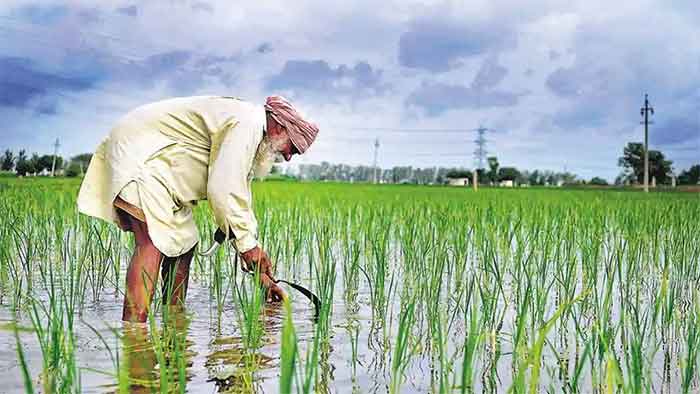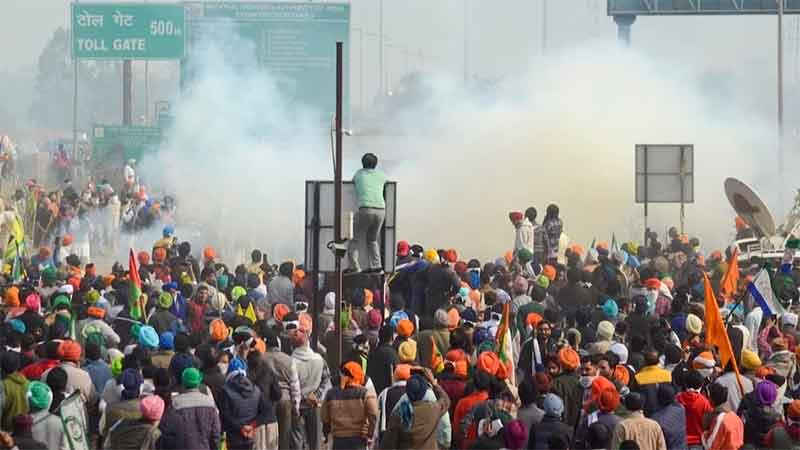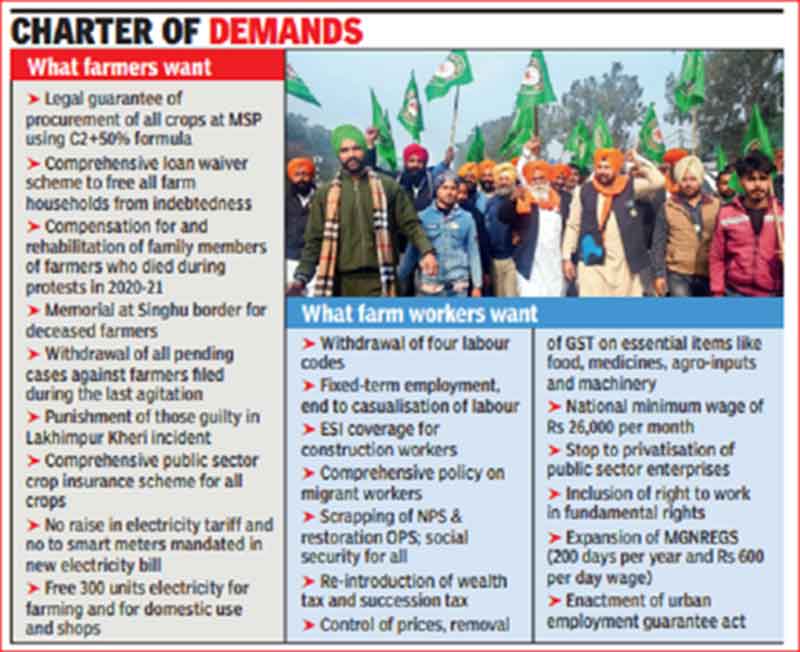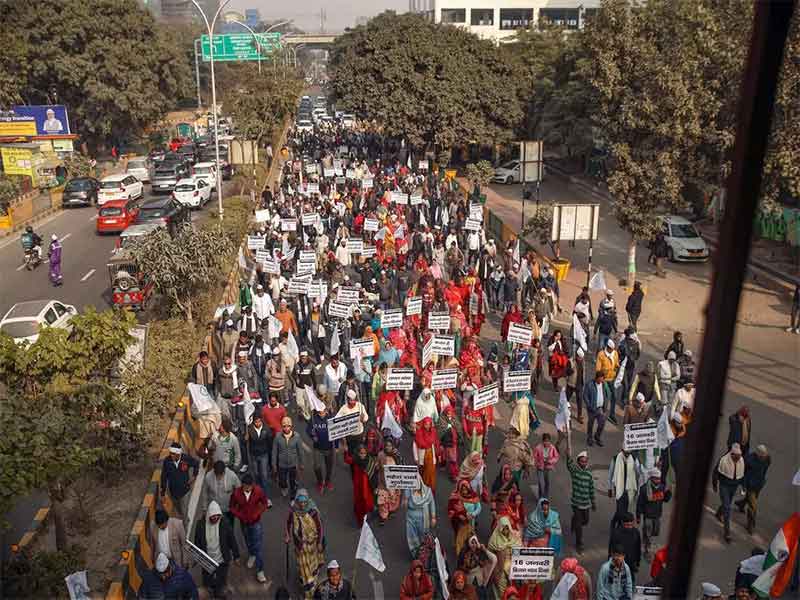
An important farmers’ movement has emerged in India around the opposition to the three recent controversial farm legislations which are widely alleged to advance corporate interests at the expense of jeopardizing a fair deal to farmers. This has support of many important farmers’ organizations and in addition sections of other social movements have also extended support to the demand for scrapping the three controversial laws. It appears that a fair degree of consensus has emerged among social movements over this demand. This is good. The hurriedly pushed through controversial farm laws should be taken back . The government should accept this demand.
There is nothing awkward about a government realizing its mistake in a democracy and taking back a hurriedly enacted law once it is realized that large sections of stakeholders are firmly opposed to this or have very serious apprehensions about this. In fact such an action as agreeing to reconsider the controversial laws by scrapping them and also calling for a sincere review of all relevant issues involving all stakeholders, particularly farmers, would be widely—nationally and internationally—seen as a democratic response of the government that would deserve appreciation and praise.
At the same time, however, it should be clearly seen that as far as genuine, much-needed reform of farm sector is concerned, it needs to go much beyond the present debate which centers mainly around the question of scrapping these bills and ensuring MSP or minimum support price to farmers.
Let us assume for the sake of argument that the three laws are scrapped, MSP is actually ensured in a much stronger and wider context and all other aspects of the present farming system remain the same. If this happens surely this would be seen as victory of farmers’ movement and for accepting these demands the government too would earn praise. Can we say that then all will live happily thereafter?
No. This is because the existing farming system in many parts of the country, more so in the leading ‘green revolution’ belt , is ecologically destructive and hence inherently unsustainable. Without making it ecologically protective and sustainable, if we merely introduce the single, one-point reform of ensuring what farmers demand as adequate MSP, then this falls much short of the much more comprehensive reforms that are needed for ecologically protective and sustainable farming.
The debate at the time of a movement often takes place in black and white terms , but the more nuanced aspects of the debate as well as the almost entirely neglected aspects also need to be brought in. An adequate stand cannot be reduced to either just supporting the farmers’ movement, or just being anti-government, but this is quite common. While the government and corporate sector have their own ways of arranging powerful support, the movements need to show solidarity in decisive times and so avoid raising any questions about their demands, even though these may be relevant. Hence the more comprehensive issues get neglected on both sides.
However it is important for someone who is clearly on the side of the movements to take a stand which can temporarily be unpopular among the movements because it deals with important issues being neglected even by them. I will like to stick my neck out and take this stand. So my firm stand is—I support the demand of the farmers’ movement for scrapping the three controversial laws, I also support the farmers’ demand for a fair and just price but at the same time I would like to emphasize that in addition much more comprehensive reform for ecologically protective and sustainable farming is a must and the demand for better price/MSP cannot be delinked or isolated from this.
I would like small farmers to get more honor than anyone else, I would like to regard their work as the most important work but only if the farming they practice is good for environment, bio-diversity , health, ensuring availability of safe and nutritious food on sustainable basis.
The good news is that natural and organic and mixed farming, least industrial input farming which makes this possible also helps to reduce economic costs of farmers greatly, increases their self-reliance and also helps to check climate change. Why is there talk only of increasing MSP and not of reducing costs. What is important for farmers more than MSP is net income ie earnings minus costs, and net income increase can come as much from reducing costs as it can come from increasing MSP. Helping to establish direct contacts of organic, natural farmers with consumers of nearby towns and cities provides an additional way of increasing farmers’ income which should get more facilitation from the government in various ways.
Farmers should prosper, farming should prosper but in the longer-term this is possible only if soil is saved, water is saved, natural pollinators are saved, friendly insects and birds are saved, bees and earthworms are saved. So let us take up all these together with the demand for a fair price.
And why do we forget climate change? It is high time social movements in India got used to linking up with the wider responsibilities our increasingly endangered world faces, and let us not forget that in the world context and all the more so in the context of India, agriculture and related activities constitute one of the most important areas of climate change mitigation and adaption. There are very creative ways of linking checking of climate change with increasing income and welfare of small farmers—this is the way forward, this is what our difficult times need.
This further increases the need for integrating justice concerns with sustainability aspects—justice for the small ( and medium) farmers should be linked up with creation of ecologically protective farming systems and practices.
Secondly, can we afford to forget to forget our landless brothers and sisters, particularly landless farm workers and migrant workers? Should we? They constitute the poorest section of our villages. We have to find some way of providing them at least some place of dignity and strength in our food and farming system, thereby also strengthening their food-security. We should not forget land reforms. If the farmers’ movement has the foresight for this, then its strength will increase greatly and it will have the base and support of almost all the rural households.
Of course farmers’ movements are entirely justified in their mobilization for resisting corporatization of farming and the three recent controversial farm bills but it will be very useful if this mobilization also looks beyond this for enduring gains of sustainable livelihoods, environment protection, self-reliance, justice-based unity and strength of entire rural communities.
Bharat Dogra is a veteran journalist who has been involved with several social movements. His recent book Man Over Machine deals with relevance of Gandhian ideas for present-day concerns.
SIGN UP FOR COUNTERCURRENTS DAILY NEWSLETTER













































